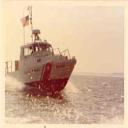Yahoo Answers is shutting down on May 4th, 2021 (Eastern Time) and beginning April 20th, 2021 (Eastern Time) the Yahoo Answers website will be in read-only mode. There will be no changes to other Yahoo properties or services, or your Yahoo account. You can find more information about the Yahoo Answers shutdown and how to download your data on this help page.
Trending News
I/O or Outboard motor?
Hi guys,
My dad is looking at purchasing a boat, which will NOT be used regularly.
Where i'm at, we're not allowed to trail the boats so my dad's preferred method of keeping the boat will be to dock it in the sea, for convenience so he can go down to the boat whenever he wants to. His looking at a 20+ footer, mainly for fishing and relaxing.
I'm wondering if he should go for the i/o or outboard since his docking it in the sea and will not be using it often.
Also i'm unsure of the maintanence costs of the 2 different types of motors.
The boat will be used maybe once a month to go out to sea, or at most 2, and the rest of the time my dad intends to just relax on the boat.
His looking at an older boat, about 10-15 years old
Thanks for your input!
7 Answers
- OutThereLv 47 years agoFavorite Answer
I have worked on outboards up to the 350hp range (Mercury Verado, looks like a fridge with a prop on the bottom) so getting one that fits a 20' wouldn't be a problem. If the boat is only going to be moved a few times a month and trailering isn't an option then an outboard is the way to go. If speed isn't a huge priority then you can get a reasonable sized 4 stroke (Yamaha's are good for that), you should get decent fuel economy without the hassle of maintaining a supply of 2 stroke oil to feed the engine. When docked the motor can be tilted clear of the water and blocked (it's what I do with my boat, the motor is only in the water when moving, but the bottom is so shallow I have to lift it when docking anyway), when the motor is lifted and blocked it can then be flushed to remove the brackish water and help preserve the engine (most marinas have a fresh water hose available and most larger outboards have a flush port for just that purpose). The use of an outboard also gives more open floor space in the hull, at the expense of a larger swim platform. A fiberglass boat won't have any problems with corrosion, a sacrificial zinc plate on the transom can be used as insurance and providing all goes well that boat may not need to leave the ocean for a while, if engine problems do arise then an engine crane on the dock can be used to remove the unit. In addition you have the peace of mind knowing you don't have to worry about your sterndrive seals or other damage the may occur to the drive while hidden beneath the water.
As for the benefits of an I/O unit over an outboard. If you get a saltwater package then you don't have to worry about flushing the engine, there are 2 coolant circuits, 1 going from the engine to a heat exchanger and the heat exchanger can either be attached to the hull or have its own water pumping circuit. This has other benefits such as; the possibility of a hot water/heater circuit spliced into the primary cooling circuit and the ability to give the motor a quick fire up and run if needed for a monthly test or top off the batteries without having to flush it. In addition I/O units can be powered by 4 stroke, 2 stroke or diesel and as mentioned the engine being located in the boat gives a larger swim platform at the back.
Most of the boats I have seen in the 20'-25' range where I worked (medium-large inland lakes) have been I/O with about 25% outboards (mostly speedboats) and 15% straight inboards (skiboats, supermodded speedboats and cruisers) .
- doornobkLv 77 years ago
You are not going to see a lot of 20+ foot boats with outboards so most likely you will be looking at an i/o.
10-15 years old chances are good even if you got an outboard it would be a 4 stroke anyway so it would require oil changes like a i/o would. Both would likely be EFI (electronic fuel injection).
I/O's come in 2 flavors, fresh and sea/salt water. The fresh water ones are like an outboard where they draw in water and circulate it through the engine for cooling. In a salt water system the engine has a 'closed' cooling system that usually contains antifreeze just like a car. They then have a heat exchanger (radiator) that gets cooled by the sea water. That way only the heat exchanger is exposed to the salt water. If you are in a climate the freezes the water must be drained from the engine and or heat exchanger. This usually involves removing several drain plugs. Outboards pretty much self drain.
- 7 years ago
I agree with everything that "Out There" says, except that I'd respectfully recommend a 2 stroker instead of 4. The 4 banger costs a lot more, weighs quite a bit more, and needs a whole lot more maintenance if its an occasional use situation. I have a 4 stroke Yamaha, and I like it a lot, except that it gets stale in a hurry when parked. A 2 banger uses a bit more fuel, doesn't run as clean, and needs 2 cycle oil (bigger boats use oil injection, so there's no need to premix), and they're about as easy to get along with as is a lawnmower -- they are incredibly forgiving as compared to a 4. If it's for ocean use, most captains will put on a pair (or even three) outboards, so that if one engine fails, they can still limp back to safety.
Source(s): boater - 7 years ago
I would personally go with outboards on a boat of that size. They offer ease of access in the event that they need mechanical work, and when left in water for a long time, they can be trimmed up and out of the water. The only real benefit I could see with getting an I/O would be that it may be diesel, offering better fuel economy than 2 stroke outboards. Hope this was helpful!
- How do you think about the answers? You can sign in to vote the answer.
- fuzzyLv 77 years ago
Dont forget you'll need t ohaul out & antifoul probably yearly. If leaving in the water I'd definitely go outboard. No underwater seals t ofail while you're not there, corrosion stopped because prop eyc out of the water, easier to repsair whewn something does go wrong, more room in the boat, better manouverability in very tight places (over inboard)
- Harry ButtcrackLv 77 years ago
Outboard. Outboards are less costly per hp to buy and maintain than a stern drive, there is more usable space in the boat ( no "doghouse"), and are capable of better fuel economy than a comparable hp stern drive. Outboards are also lighter, and if used in salt water are easier to flush ( all newer large outboards have a built-in flush attachment). They also can be tilted completely up out of the water when not in use to further reduce salt water corrosion.
- mark tLv 77 years ago
There are many boats in that size range that are outboard powered. There are even 38+ powered by outboards. I would never get an i/o, it has the best of both worlds but also the worst of both worlds (outboard vs inboard). If the engine ever needs replacing, the outboard requires much less work to do so.





